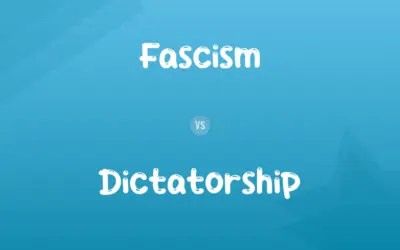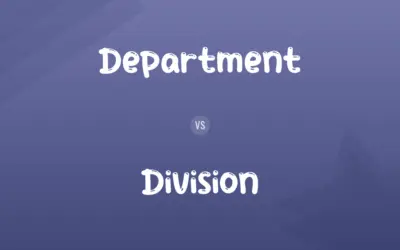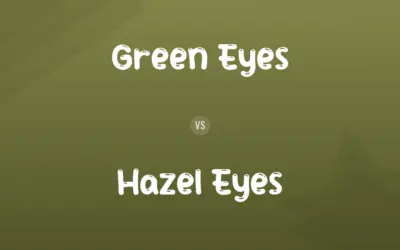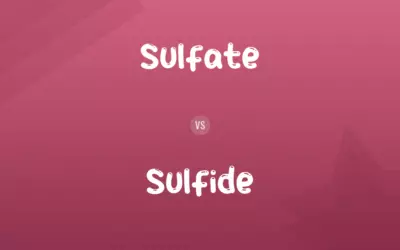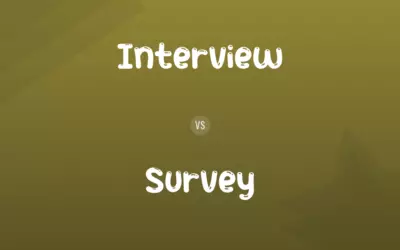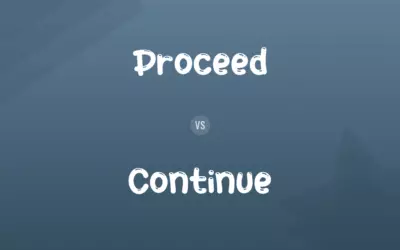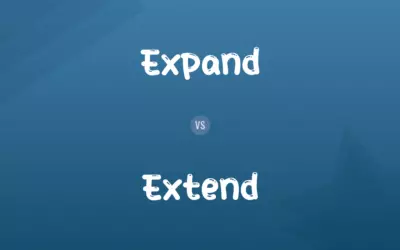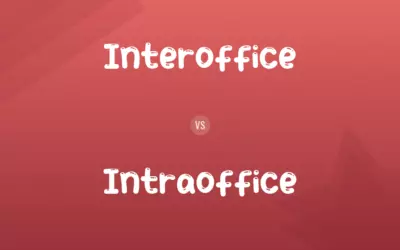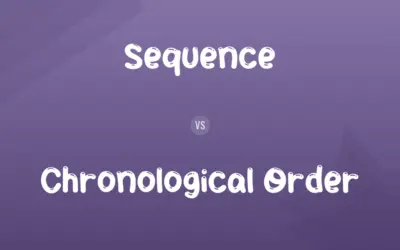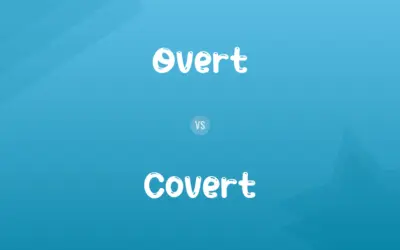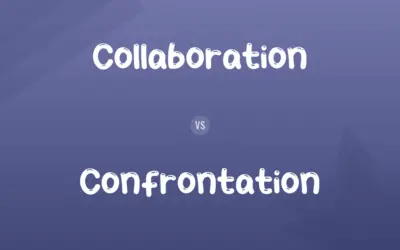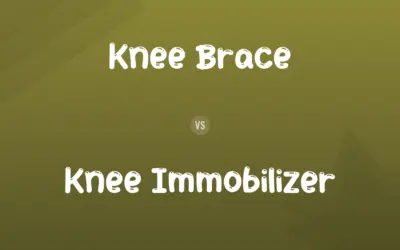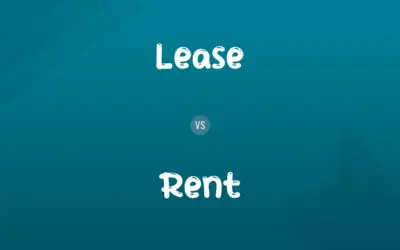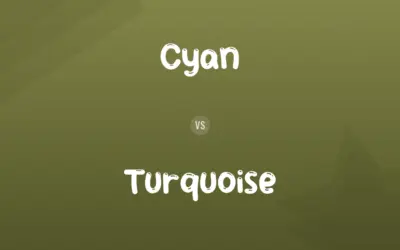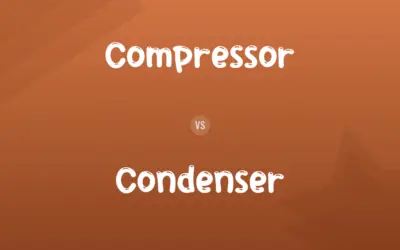Arrest vs. Detention: Difference and Comparison
Edited by Muazma Batool — By Muneeza Rehman — Published on April 8, 2024
Arrest involves taking someone into legal custody, while detention is a temporary hold for questioning.
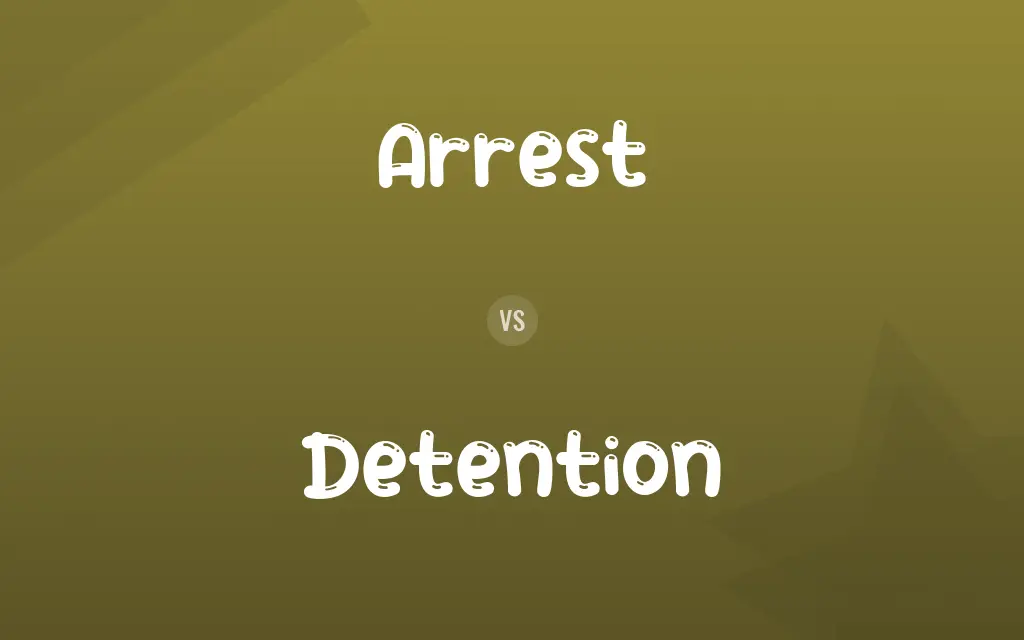
Difference Between Arrest and Detention
Arrest and detention are two distinct legal actions used by law enforcement to manage individuals suspected of illegal activities. An arrest is a formal process where an individual is taken into custody with the intention of charging them with a crime. It typically requires a warrant or probable cause that the individual has committed a crime. Detention, however, is a shorter, less formal process, often used for questioning or investigation purposes, and does not necessarily lead to charges or require a warrant.
Muneeza Rehman
Apr 08, 2024
During an arrest, the individual's freedoms are significantly restricted, and they are often taken to a police station, fingerprinted, and possibly held until a court appearance. Detention is more about temporarily restricting someone's freedom, usually at the scene, for a limited period, without the formal process of booking or charging them with a crime. The purpose is to quickly assess a situation or verify the individual's information.
Muneeza Rehman
Apr 08, 2024
Legal rights under arrest and detention differ. When arrested, individuals are typically read their Miranda rights, including the right to remain silent and the right to an attorney. During a detention, while not formally under arrest, individuals still have rights, but the full Miranda rights may not be invoked until it's clear that the detention has turned into an arrest.
Muneeza Rehman
Apr 08, 2024
The criteria for arrest and detention also vary. An arrest requires substantial evidence or probable cause, indicating a strong likelihood of criminal activity. Detention can be based on reasonable suspicion, a lower standard of evidence, allowing officers to investigate whether there is probable cause for an arrest.
Muneeza Rehman
Apr 08, 2024
The outcomes of arrest and detention are markedly different. An arrest can lead to formal charges, a court appearance, and possibly a trial. Detention may result in no further action if the officer determines there is no cause for an arrest, or it may escalate to an arrest if evidence is found during the detention.
Muneeza Rehman
Apr 08, 2024
Arrest vs. Detention Comparison Chart
Legal Basis
Requires warrant or probable cause
Based on reasonable suspicion
Muneeza Rehman
Apr 08, 2024
Duration
Potentially long, until court proceedings
Short, typically lasts as long as necessary for questioning
Muneeza Rehman
Apr 08, 2024
Rights
Miranda rights must be read
Rights exist, but Miranda may not be invoked immediately
Muneeza Rehman
Apr 08, 2024
Outcome
May lead to charges, court appearance
May result in release or escalate to arrest
Elijah
Apr 08, 2024
Arrest vs. Detention Definitions
◉Arrest
Formal process of taking someone into custody.
He was arrested for burglary after the evidence was reviewed.
Muneeza Rehman
Feb 22, 2024
◉Detention
Does not necessarily lead to charges.
After being detained and questioned, he was released without charges.
Muneeza Rehman
Feb 22, 2024
◉Arrest
Requires probable cause or a warrant.
The arrest was made after obtaining a warrant from the judge.
Muneeza Rehman
Feb 22, 2024
◉Detention
Based on reasonable suspicion.
The officer detained him based on reasonable suspicion of theft.
Olivia
Feb 22, 2024
◉Arrest
Rights are formally read to the individual.
Upon his arrest, his Miranda rights were read to him.
Nolan
Feb 22, 2024
◉Detention
Short-term and location-flexible.
He was detained at the scene for a brief period to verify his identity.
Kaitlyn
Feb 22, 2024
◉Arrest
Involves charges and potential court appearance.
Following her arrest, she awaited her court date.
Muneeza Rehman
Feb 22, 2024
◉Detention
Rights may not be immediately invoked.
During her detention, she was asked preliminary questions before her rights were discussed.
Lucas
Feb 22, 2024
◉Arrest
Leads to booking and fingerprinting.
After his arrest, he was booked and fingerprinted at the station.
Kaitlyn
Feb 22, 2024
◉Detention
Temporary hold for questioning or investigation.
She was detained for questioning regarding a missing item.
Muneeza Rehman
Feb 22, 2024
◉Arrest
To stop; check
A brake that automatically arrests motion.
Arrested the growth of the tumor.
Muneeza Rehman
Feb 21, 2024
Arrest vs. Detention Frequently Asked Questions
Do you have rights during detention?
Yes, individuals have rights, although Miranda rights may not be immediately read.
Levi
Apr 08, 2024
What is detention?
A temporary hold for questioning or investigation without formal charges.
Muneeza Rehman
Apr 08, 2024
What requires probable cause?
An arrest requires probable cause, suggesting a strong likelihood of criminal activity.
Nolan
Apr 08, 2024
How long can you be detained?
Duration varies, but it's generally as long as reasonably necessary for questioning.
Muneeza Rehman
Apr 08, 2024
Can detention lead to an arrest?
Yes, if evidence is found during detention, it can escalate to an arrest.
Elijah
Apr 08, 2024
Is a warrant needed for detention?
No, detention can be based on reasonable suspicion, which is a lower standard than probable cause.
Muneeza Rehman
Apr 08, 2024
What happens after an arrest?
The individual is booked, may be fingerprinted, and awaits a court appearance.
Nolan
Apr 08, 2024
Can you refuse to answer questions during detention?
Yes, you have the right to remain silent, although it's best to clarify your rights with law enforcement.
Leo
Apr 08, 2024
What is an arrest?
A formal process where an individual is taken into custody for a crime.
Muneeza Rehman
Apr 08, 2024
What's the difference between probable cause and reasonable suspicion?
Probable cause is a higher standard requiring evidence of criminal activity, while reasonable suspicion is a lower standard for investigatory stops.
Elijah
Apr 08, 2024
Content Creators
Written by
Muneeza RehmanAt Comparisons.wiki, Muneeza skillfully navigates the vast sea of information, ensuring clarity and accuracy as the lead content editor. With a keen eye for detail, she curates every comparison to enlighten and engage readers.
Edited by
Muazma BatoolAs a content editor, Muazma Batool is not just a grammar guru but a creative mastermind who breathes life into every word. With an eagle eye for detail and a passion for storytelling, she transforms bland text into engaging content that captivates audiences and drives results.


